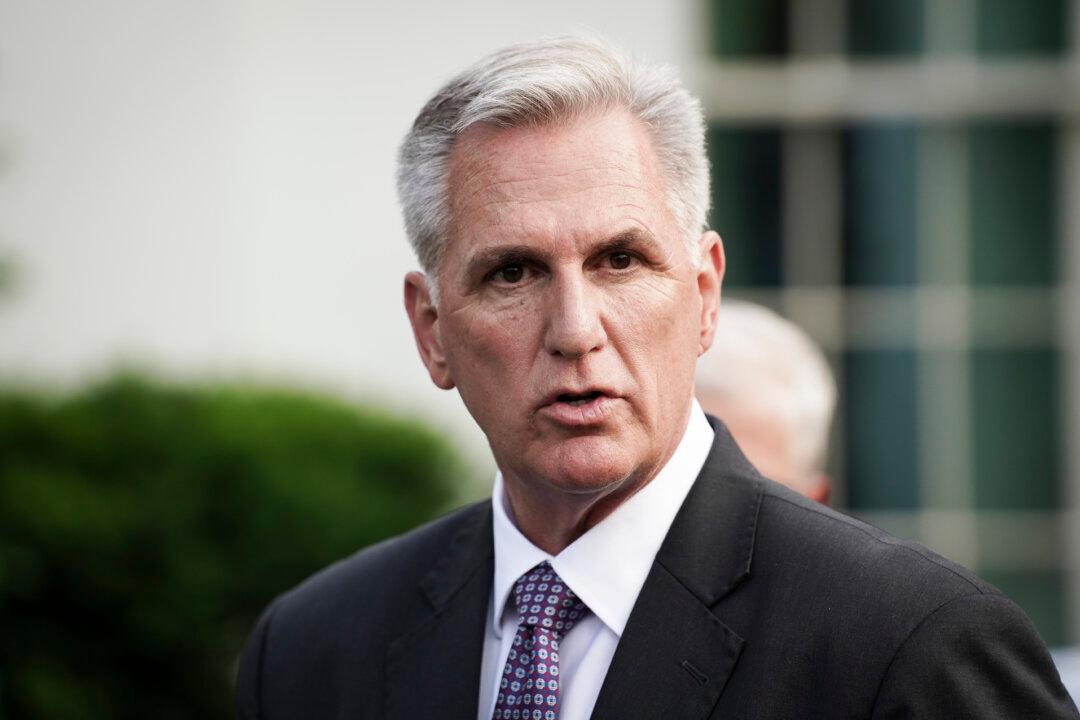House Speaker Kevin McCarthy (R-Calif.) threw cold water on the idea of a supplemental defense spending bill.
In comments to reporters on Capitol Hill on June 5, McCarthy cited that the bipartisan debt ceiling bill that passed Congress last week and was signed into law by President Joe Biden on June 3 addressed defense spending. The now-law was a product of weekslong negotiations between McCarthy and Biden.





